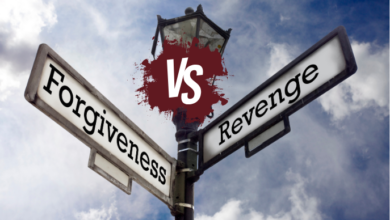Warning: Phil Vischer Has Departed from Biblical Teachings
An Opinion Piece by Earl Starbuck

In mid-November of 2022, Candace Cameron Bure declared that the Great American Family TV network (GAF), of which she is the chief creative officer, “will keep traditional marriage at the core.” This has been taken by many to mean that GAF will not feature same-sex couples, and it has led to a firestorm of criticism against Bure. Sadly, her apparent defense is not as strong as it initially seems to be, as she later told IndieWire: “people of all ethnicities and identities have and will continue to contribute to the network in great ways both in front of and behind the camera, which I encourage and fully support.” What’s interesting about this whole dust-up is not that Bure rushed into the breach to defend orthodoxy (which, unfortunately, has not occurred), but rather the vitriolic response to her benign statement by VeggieTales co-creator Phil Vischer. In episode 537 of his Holy Post Podcast, Vischer said “My fear is that GAF (Great American Family) is going so far as to erase the existence of sexual or gender minorities.”
This is something of an about-face for Vischer, who said in 2019 that it was “a matter of time” before shows geared to Christian kids would have to address LGBTQ issues from a biblical perspective. He said he would refuse to portray homosexual “marriage” in his shows “[b]ecause that’s not what I believe is best for kids.” Even here, though, his appeal to a “biblical” perspective is short-lived as he states “the nuance of how to treat LGBT issues isn’t agreed upon within the Church” and, “It would be hard to do it in a way that works and matches everyone’s expectations.” His refusal clearly was meant to be temporary, however: “I’m portraying the positive rather than the negative. At least for now [but] I do believe that at some point we’ll be forced to figure out how to explicitly address it.”
Evidently Phil Vischer believes that time has come. While in 2019 he was talking about dealing with these kinds of issues “from a biblical perspective because children are already seeing these storylines in secular movies and TV shows,” his criticism of Candace Cameron Bure gives us reason to wonder about the extent to which he wishes to uphold biblical teachings on these issues. In criticizing Bure, Vischer has joined a truly illustrious company, including pansexual influencer and LGBTQ icon JoJo Siwa and GLAAD.
Later in Holy Post episode 537, Vischer queried: “Even the notion that nothing truly conservative can last, at least not for long, how do we know if that’s not a good thing?” A conservative attempt to defend “the permanent things” is bad, he contended, because “who gets to decide what are the permanent things”? Vischer then insisted:
For a hundred years, what conservatives fought to conserve in America was racial hierarchy.…[T]he one thing that all Confederate theologians agreed on in 1865 was that the Bible was on their side.…[N]ow we say, ‘Oh, yeah, yeah, yeah, but they were wrong. Oh, yeah, that wasn’t one of the permanent things. Now, we know what the permanent things are — and the permanent things are the nuclear family as came into existence in 1952…and ahh, heterosexual marriage.
Might Jesus ask Vischer the same question he asked the Pharisees when they brought up the issue of divorce and asked Jesus whether or not it was “lawful for a man to divorce his wife for just any reason”? (See Matt. 19:1–10.) Here was Jesus’ response.
Have you not read that He who made them at the beginning “made them male and female,” and said, “For this reason a man shall leave his father and mother and be joined to his wife, and the two shall become one flesh”? So then, they are no longer two but one flesh. Therefore what God has joined together, let not man separate.
In a bit, we will cite these verses once again, along with statements from Mark’s account of the same incident. We’ll also cite several other, crystal-clear statements from Scripture about marriage as well. We aren’t left to wonder if Vischer has departed from biblical teachings. He has.
Avoiding the Core Issue — And Misrepresenting History
After the podcast in which Mr. Vischer made his outrageous claims, Woke Preacher Clips appealed to him on Twitter, asking whether a monogamous, legally “married,” physically-abstinent homosexual couple was guilty of sin. Vischer’s response? “Not the topic of the thread or the show,” and he would be “[h]appy to have a coffee and discuss.”
To begin with, calling Vischer’s historical understanding sophomoric would be an insult to sophomores. Based on the phrase “for a hundred years” and his mention of 1865, Mr. Vischer presumably was referring to Jim Crow segregation policies and “conservative” opposition to the Civil Rights Act of 1964, with a virtue-signaling swipe at slaveowners thrown in for good-measure. Contrary to Vischer’s implication, slavery and support for racial hierarchy were neither uniquely conservative nor exclusively Southern. Consider conservative Southern pastors (or “Confederate theologians,” if you will), such as James Henley Thornwell and Thomas Smyth who, though they supported slavery, also proclaimed the full and complete humanity of black people on the basis of Holy Scripture, fiercely contending that all persons have descended from Adam and Eve and therefore are equally human, equally sinful, equally in need of redemption through Jesus Christ, and equal bearers of the Imago Dei, the image of God. According to Thornwell, if Southerners denied that white and black people were of one blood, such a claim “would have justly drawn down the curse of God.” He continued:
[T]he Negro is of one blood with ourselves…Science, falsely so called, may attempt to exclude him from the brotherhood of humanity…but the instinctive impulses of our nature, combined with the plainest declarations of the word of God, lead us to recognize in his form and lineaments [distinctive traits or features], in his moral, religious and intellectual nature — the same humanity in which we glory as the image of God. We are not ashamed to call him our brother.
Thus, despite his support for slavery, James Thornwell viewed blacks as persons — and persons who, like all other human beings, bear God’s image. The Wikipedia article on Thornwell notes that
contrary to many proponents of slavery, he preached that the African American population were people created in the image of God just like whites and that they should call slaves their brothers.…Being an orphan himself, Thornwell considered slaves should be treated with loving care and paternalistic guidance. He advocated a limited slavery which was humane and in line with God’s precepts.
All of this is a far cry from the portrait Phil Vischer, with his broad brush, paints of “conservative” Southerners. Yet Thornwell and Smyth weren’t writing in a vacuum. Popular and influential Harvard professor Louis Agassiz (1807–1873) was teaching that white and black people represented two different species of human beings.1 Indeed, he observed in a letter to his mother that the more he interacted with black people, “the more…impossible it becomes for me to repress the feeling that they are not of the same blood as we are.” Elsewhere he expressed his hope that, once the War was over, most of the black people living in the North would move South, “while the weaker and lighter ones will remain and die out among us.” Agassiz desired this mass emigration of blacks out of the North because he thought “amalgamation,” meaning marriages between white-black couples, would endanger “the progress of civilization.”
Similarly, Ralph Waldo Emerson (1803–1882), who was liberal, a transcendentalist, and an abolitionist, wrote that he opposed slavery because of his racial prejudice: “The abolitionist wishes to abolish slavery, but because he wishes to abolish the black man.…[T]he brute instinct rallies & centres in the black man. He is created on a lower plane than the white….” Elsewhere, Emerson jotted down his belief that black people would go extinct: “The dark man, the black man declines.…It will happen by & by, that the black man will only be destined for museums like the Dodo.”
There’s more. Many 21st-century Americans are unaware that Jim Crow segregation began in the North decades before the eruption of the Late Unpleasantness Between the States, as C. Vann Woodward notes in his book, The Strange Career of Jim Crow:
Segregation in complete and fully developed form did grow up contemporaneously with slavery, but not in its midst. One of the strangest things about the career of Jim Crow was that the system was born in the North and reached an advanced age before moving South in force.… [White Northern voters] firmly believed that the Negroes were incapable of being assimilated politically, socially, or physically into white society. They made sure in numerous ways that the Negro understood his “place”….One of these ways was segregation, and with the backing of legal and extra-legal codes, the system permeated all aspects of Negro life in the free states in 1860.
Van Woodward then illustrates his point with a lengthy quotation from Leon F. Litwack’s book, North of Slavery, in which Litwack asserts that in the pre-war North, black people were segregated from white people “[i]n virtually every phase of existence,” having separate rail cars, buses, boats, and stagecoaches (or separate sections in those conveyances), and separate sections in lecture halls and theatres. Most resorts, hotels, and restaurants were off limits to black people unless they were employed there. Black folks who attended white churches were assigned separate pews, and if they partook of the Lord’s Supper, they had to wait until the white congregants had gone first. Blacks living in the antebellum North also generally had separate schools, prisons, hospitals, and cemeteries.
In the mid-20th-century, even as many opponents of desegregation acted out of racial prejudice, there were others who had legitimate concerns about the expansion of Federal power involved. Famed black author Zora Neale Hurston opposed the Supreme Court’s anti-segregation ruling in Brown v. Board of Education because she thought the ruling violated the Constitution. She wrote to the Orlando Sentinel in August, 1955:
In the ruling on segregation, the unsuspecting nation might have witnessed a trial-balloon. A relatively safe one, since it is sectional and on a matter not likely to arouse other sections of the nation to the support of the South. If it goes off fairly well, a precedent has been established. Govt by fiat can replace the Constitution.
Others shared Hurston’s concerns. US Senator Barry Goldwater had fought for equal civil rights in his home State of Arizona, but he refused to vote for the Civil Rights Act of 1964 because he considered parts of the bill unconstitutional.
You see, the realities surrounding these kinds of situations are complex and nuanced. In part because they’re not simple but multi-faceted, they’ve been widely misrepresented, paving the way for the people involved to be thoroughly misunderstood. Recall Phil Vischer’s description of the conservatives in the South — and the nuclear family, and heterosexual marriage. At bare minimum, history is far more complex and active, rather than the cartoonish, flat caricature Mr. Vischer presents.
The Sacredness of Man-Woman Marriage
As the story of sinful, fallen human beings interacting with one another consistently affirms, history is complex. On the other hand, biblical teachings concerning homosexuality and marriage are not at all complex. Holy Scripture is as clear as crystal, which is why it’s doubly concerning to find Phil Vischer oversimplifying the complexity of history while simultaneously complicating the simple, straightforward teachings of God’s Word. By saying that the conservative defense of the “permanent things” has shifted from “racial hierarchy” to “the nuclear family as came into existence in 1952…and heterosexual marriage,” Vischer has drawn a false equivalency between pride and ethnic vainglory on the one hand, and a Christian, biblical defense of God-ordained marriage on the other. Let there be no equivocation here — “racial hierarchy” has no biblical basis, so any Christian advocating such is outside biblical conservatism and biblical truth. By contrast, both the Old and New Testaments give numerous examples of God’s crystal-clear definition of marriage as a union and holy covenant between one biological man and one biological woman. Noah and his sons each had only one wife (see Gen. 7:13). The Apostle Paul says clearly: “let each man have his own wife, and let each woman have her own husband” (1 Cor. 7:2), and he just as clearly exhorts each man to love his own wife and each woman to respect her own husband (see Eph. 5:33). Both the Lord Jesus (Matt. 19:4–6, Mark 10:5–9) and the apostle Paul (Eph. 5:22–33) quote Genesis 2:24 as authoritative and exemplary: “Therefore a man shall leave his father and mother and be joined to his wife, and they shall become one flesh.” In Matthew 19 and Mark 10, Jesus additionally cited the created order given in Genesis 1:27: “male and female He created them.” Mark this down as well: The writer of Hebrews also declared, “Marriage is honorable among all, and the bed undefiled; but fornicators and adulterers God will judge” (Heb. 13:4).
Thus, we see only affirmations of man-woman marriage in Scripture. By contrast, in both Testaments, the Bible consistently refers to homosexuality as a crime against the law of God and a violation of His created order (see Gen. 19:1–29; Lev. 18:22; Lev. 20:13; Rom. 1:18–32; 1 Cor. 6:9–11; 1 Tim. 1:10). Therefore, homosexual “marriage” is not merely a contradiction in terms; it is an act of defiance against God, His created order, and His design for humanity.
Vischer’s false parallel isn’t just grounded in terrible exegesis; it also draws a moral equivalency between sin and the God-established institution that is the sine qua non [essential element, characteristic, or quality] of all civilization. In other words, Vischer is calling good evil, something the prophet Isaiah warned against in no uncertain terms (see Isa. 5:20–21). Perhaps Vischer is genuinely concerned that Christians might be misinterpreting or intentionally misusing the Word of God; such abuses can and have happened. However, if this is the case, he has yet to “connect the dots” between his expressed concerns and authentic biblical teachings. Or perhaps he merely is parroting popular and palatable opinions, choosing to be swept along by the spirit of the age rather than guided by the Spirit of the Lord.
Sincere or not, Mr. Vischer clearly has failed, and may have intentionally refused, to properly interpret Scripture and to love, proclaim, and defend its teachings. With this failure, he has fallen for the oldest trick in Satan’s playbook. As the serpent asked Eve, so now does Phil Vischer ask the church: “Has God indeed said?”
Let’s be sure we respond with the correct answer, and with convictions to back it up. Yes, God really has said, and He meant every word!
Unless otherwise indicated, Scripture has been taken from the New King James Version®. Copyright © 1982 by Thomas Nelson, Inc. Used by permission. All rights reserved.
1Edward Lurie, Louis Agassiz: A Life in Science (Chicago, University of Chicago Press, 1960), 256–259.
2Ibid., 257
3C. Vann Woodward, The Strange Career of Jim Crow, Commemorative Edition (Oxford, Oxford University Press, 2002),17–18.
4Ibid., 18–19, quoting Leon Litwack, North of Slavery. Woodward cites no page number, but Litwack’s book can be accessed here for free: https://archive.org/details/northofslavery00leon/page/n5/mode/2up




